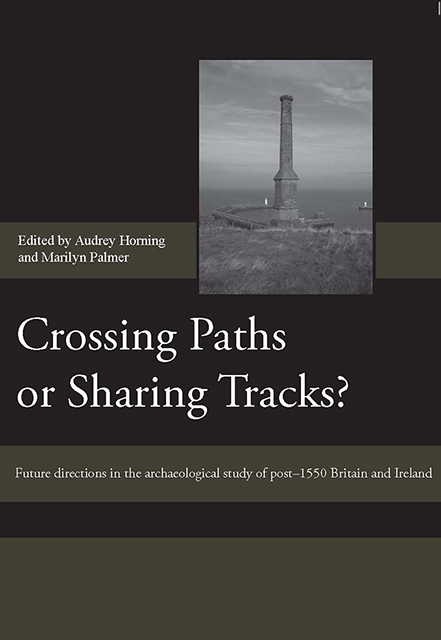 Crossing Paths or Sharing Tracks?
Crossing Paths or Sharing Tracks? Post-1550 Urban Archaeology in a Developer-Funded Context: An Example From Grand Arcade, Cambridge
Published online by Cambridge University Press: 07 March 2023
Summary
The amount of post-1550 developer-funded urban archaeology has expanded exponentially in recent years. Based upon the author's recent experience of directing excavations at the Grand Arcade site, Cambridge, some of the implications of this expansion are explored, withparticular reference to how such material should be published. Existing models of publication are problematic, but the potential exists for developer-funded urban archaeology to make a substantive contribution to our understanding of the period.
INTRODUCTION
Since the introduction of PPG16 Archaeology and Planning in November 1990 a vast amount of developer-funded archaeology has been undertaken in the United Kingdom. The extent of such work is impossible to quantify precisely, but certainly runs into millions of pounds, with a significant proportion of this directed towards the post-1550 period. This has led to the investigation of thousands of features and the creation of huge assemblages of material. Yet in most instances this work has not been undertaken by organisations or individuals with a specific interest in the post-1550 period, but by ‘generalists’ or ‘urban specialists’ who must frequently deal withthe Roman, Saxon, medieval, post-medieval and modern periods on a single site. From this perspective the fragmentation of the post-1550 period into ‘post-medieval’, ‘industrial’ and ‘contemporary and historical’ archaeologies is simply part of a wider disciplinary malaise of factionalisation and specialism, which is the antithesis of what high quality urban archaeology should be about, as ‘sequence is all’. The scale of developer-funded urban archaeology being undertaken clearly has the potential to inform us about both‘questions that count’ and ‘stories that matter’2 for the post-1550 period, although this potential remains largely untapped.
Some of the issues surrounding developer-funded archaeology of the post-1550 period will be addressed in this chapter. These primarily relate to an inherent contradiction, for while on the one hand it is desirable to treat all periods on a site in as similar a manner as possible in order to promote comparability, on the other it is also important to recognise the particular strengths and weaknesses of each individual phase. Withregard to the post- 1550 period, it is boththe nature and variety of the available evidence that are striking, and which often comprise an undervalued and underused resource.
GRAND ARCADE, CAMBRIDGE
In 2005 and 2006 the Cambridge Archaeological Unit (CAU) undertook large-scale excavations at the Grand Arcade site in central Cambridge (Figs 22.1 & 22.2).
- Type
- Chapter
- Information
- Crossing Paths or Sharing Tracks?Future directions in the Archaeological Study of Post-1550 Britain and Ireland, pp. 301 - 322Publisher: Boydell & BrewerPrint publication year: 2009
- 4
- Cited by


